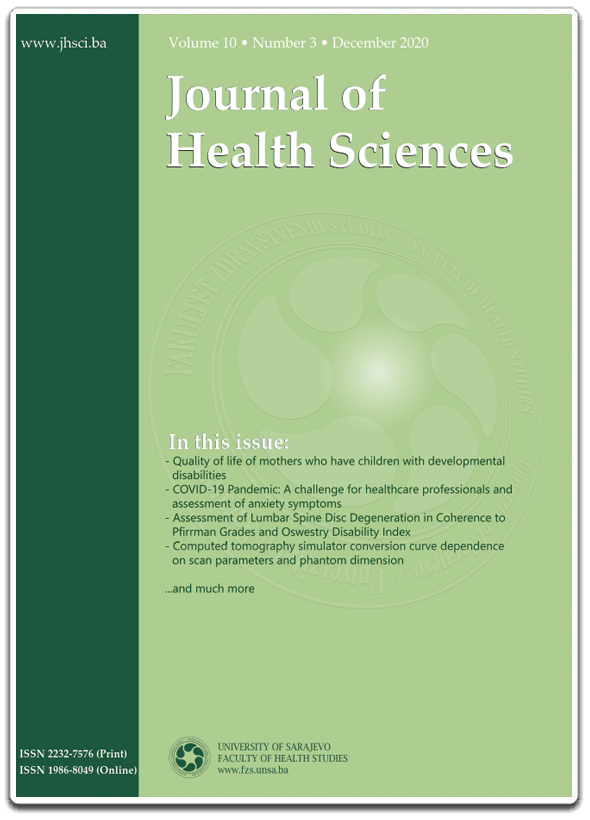Cytogenetic effects of combination of tridecactide and met-enkephalin on lymphocytes of patients with multiple sclerosis
DOI:
https://doi.org/10.17532/jhsci.2015.237Keywords:
alpha-corticotropin 1-13, tridecactide, met-enkephalin, chromosome aberration, Multiple Sclerosis, -enkephalinAbstract
Introduction: The met-enkephalin (1-5 Adrenorphin) and tridecactide (alpha-corticotropin 1-13) combination is used in the multiple sclerosis (MS) immuno-modulatory treatment. A testing of cytogenetic effects of met-enkephalin resulted in reductions of lymphocytic aberrations in the in the lymphocytes of the peripheral blood (PBL) of patients with immune-mediated diseases. The aim of this research is to evaluate the in vitro effects of the combination of the met-enkephalin and tridecactide on the number and the type of chromosome aberrations in PBL of the MS patients. Methods: We used blood samples from seven female patients with the diagnosis multiple sclerosis based on a McDonald Diagnostic Criteria. The tested combination, met-enkephalin and alpha-ACTH 1-13 was added at three different concentrations and constant volume. Results: Results showed that the combination of tested substances did not reduce the number of structural aberrations, although the treatment did not result in severe aberrations such as ring, fragmented, and dicentric chromosomes. Furthermore, it elicited an increase in the number of numerical aberrations and aneuploidy after the treatment with the test combo. Conclusion: As the changes in ploidy significantly change the DNA as well as the biochemical cell phenotype, we concluded that more research in this field should be conducted, including both toxicological as well as the pharmacodynamic considerations.Downloads
Download data is not yet available.
Downloads
Published
28.04.2015
Issue
Section
Research articles
How to Cite
1.
Cytogenetic effects of combination of tridecactide and met-enkephalin on lymphocytes of patients with multiple sclerosis. JHSCI [Internet]. 2015 Apr. 28 [cited 2026 Feb. 13];5(1):5-10. Available from: https://jhsci.ba/ojs/index.php/jhsci/article/view/397










